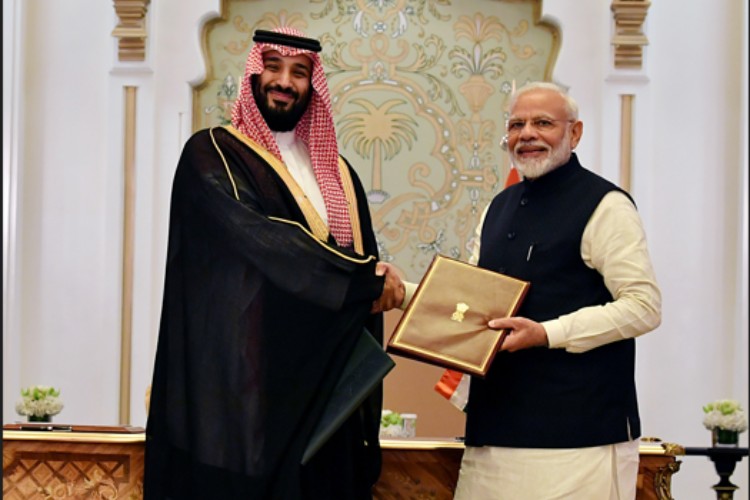
Dr. Shomaila Warsi/New Delhi
In a significant decision, the Saudi embassy in Delhi announced on November 17 that Indian citizens will no longer require police clearance certificates to get a visa for Saudi Arabia. This gesture is yet another example of India’s growing relations with the Muslim world.
The statement issued under the seal of the Royal Embassy of Saudi Arabia in India credited the strong relations and strategic partnership between the Kingdom of Saudi Arabia and the Republic of India for the decision to exempt Indian nationals from submitting a Police Clearance Certificate (PCC).
As expected, the Indian mission in Saudi Arabia was quick to welcome this gesture, saying that it would provide much-needed relief to more than 2 million Indian citizens living peacefully in the Kingdom
Under Prime Minister Narendra Modi, India has in recent years paid special attention to the India-Saudi relationship. As the most important country in the OIC and home to the two holiest cities of Islam Saudi Arabia has emerged as a crucial international partner for India. The bilateral cooperation has particularly enhanced since the signing of the Defense and Cooperation agreement between Saudi Arabia and India in 2014.
A significant recent development in India’s relationship with the Gulf States has been India’s increasing clout in the region. With Saudi Arabia, although the relationship goes back to 3000 years ago when Saudi Arabia was a key player in the spice trade with India, the shared common concerns of the day have brought the two nations extremely close over issues related to security, trade, investment, climate change, and global peace.
Earlier this year, Prime Minister Modi visited UAE to convey his personal condolences on the passing away of H.H. Sheikh Khalifa bin Zayed Al Nahyan, the former UAE President, and Abu Dhabi Ruler. The most striking feature of this outreach has been that Prime Minister’s keen interest in cultivating a warm relationship with key Gulf States like Qatar, Bahrain, and Jordan has been happening at a time when India is taking its relationship with Israel to the next level. It is because of these efforts that a new Hindu Temple was recently opened at Jabel Ali in Dubai.
Likewise, India’s economic and commercial relationship with Indonesia has grown to a level where Indonesia is now India’s second-largest trading partner in the ASEAN region.
During her September 2022 visit to India, Bangladesh PM Sheikh Hasina appreciated PM Modi’s leadership at a time when India is celebrating Azadi ka Amrit Mahotsav and declared India-Bangladesh bilateral relations as a role model for neighborhood diplomacy.
At the 2nd Summit of the Shanghai Cooperation Organisation (SCO) in Samarkand on 16 September 2022 Iranian President Ebrahim Raisi, in his meeting with Prime Minister Modi urged greater regional connectivity and stressed on the importance of the Chabahar Port. Prime Minister Modi assured India’s support for an inclusive and peaceful Afghanistan which resonates with India’s vision for the SCO.
Maldives, another important Muslim nation and a key player in India’s Indian ocean strategy has been extremely responsive to India’s outreach in recent times. During his visit to India in the month of August, Maldivian President Ibrahim Solih acknowledged that the Maldives-India relationship goes beyond diplomacy. He called his visit an affirmation of the close bond between the two countries.
During this visit, Indian Prime Minister Narendra Modi and Maldivian President Ibrahim Mohamed Solih launched the "Greater Male connectivity projects in the Maldives" and also entered pacts in areas like cyber security, disaster management, and police infrastructure development.
ALSO READ: Indian Muslims are happy; do not need any rescuing: Dr. Shomaila Warsi
Prime Minister Narendra Modi’s five pillars of foreign policy: Sammaan (mutual respect); Samvaad (engagement); Suraksha (security); Samriddhi (shared prosperity) Sanskriti and Sabhyata (invoking cultural and civilizational linkages), have led to India’s resurgence as a major player in the world politics. India’s expanding influence in the Muslim world is a key feature of this resurgence.
(The writer teaches international relations at Maharaja Agrasen College, Delhi University)
